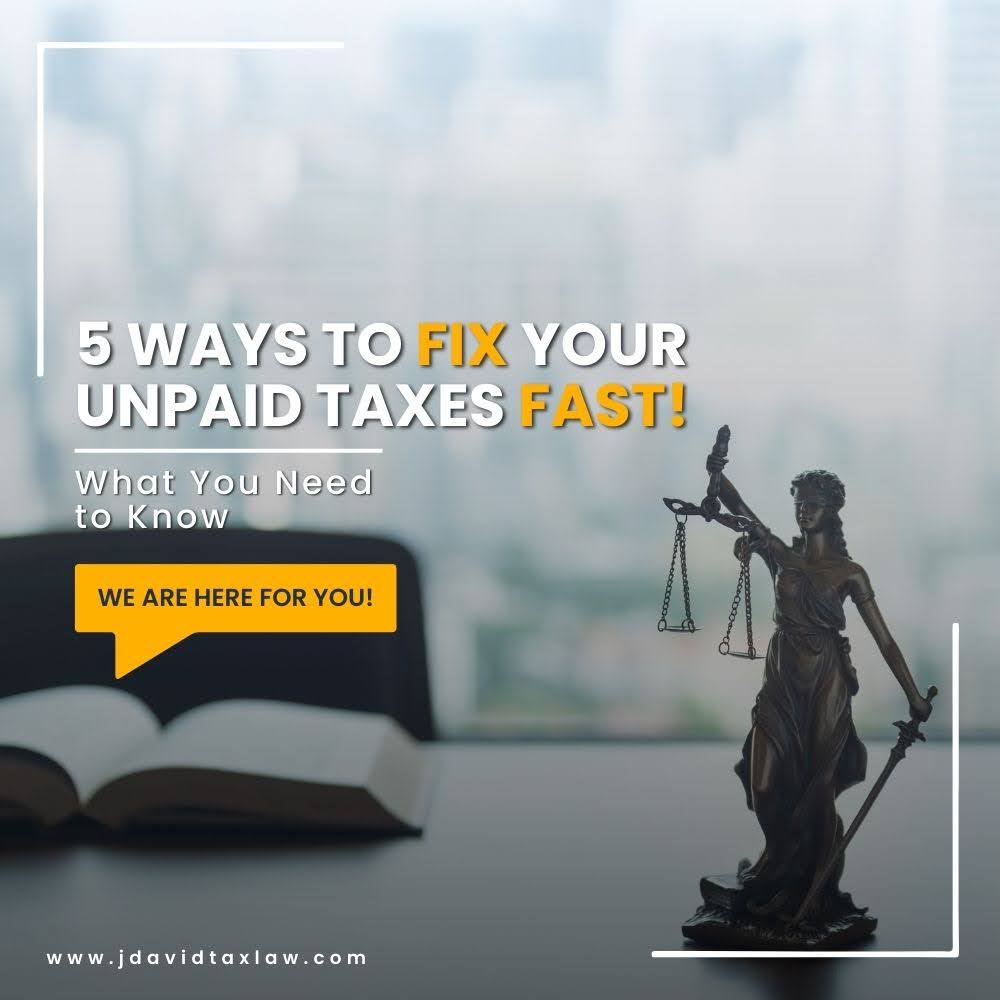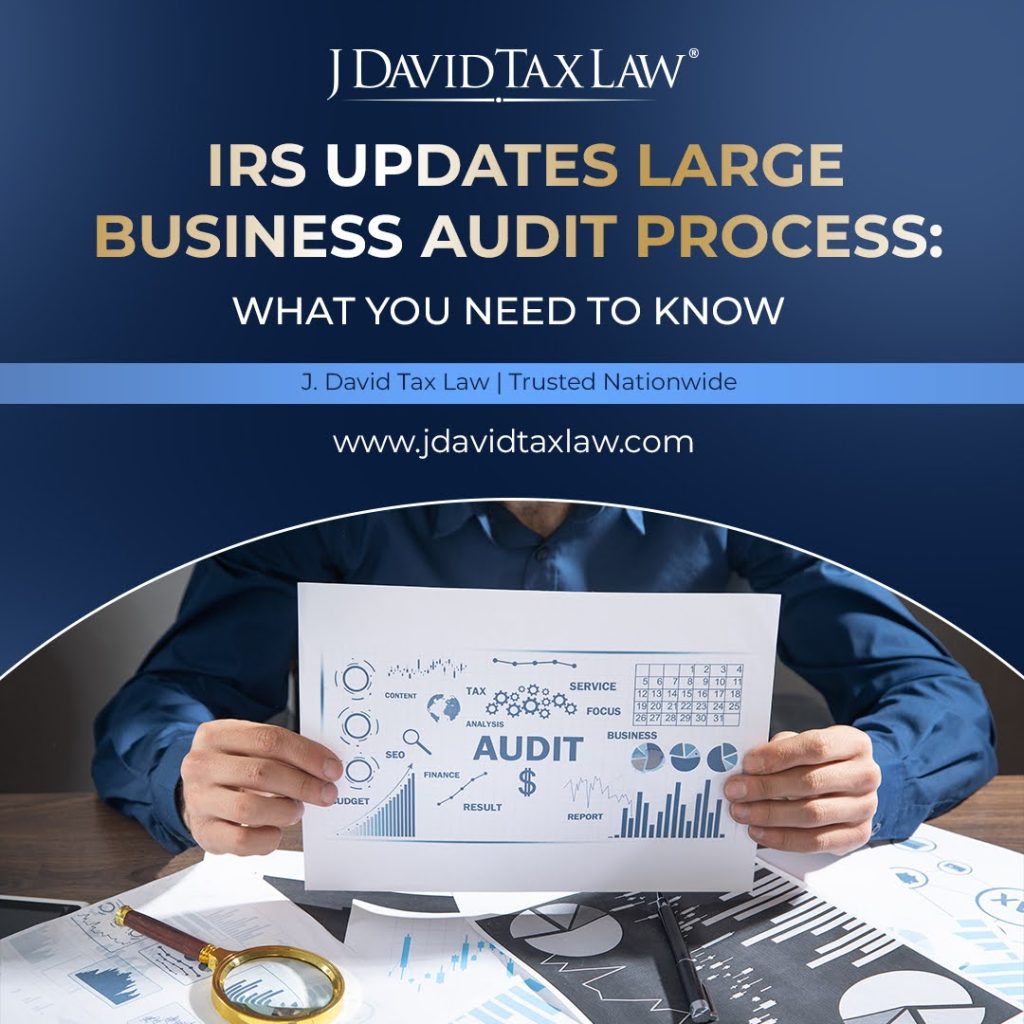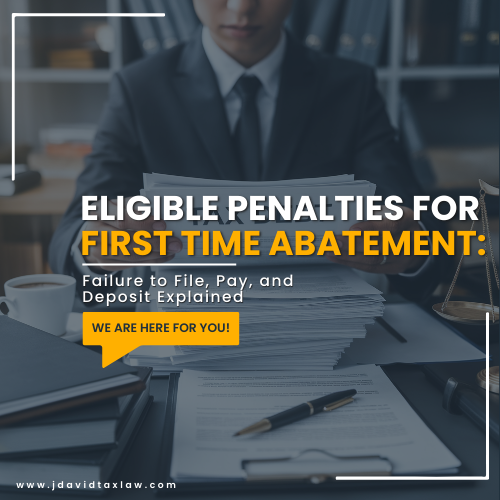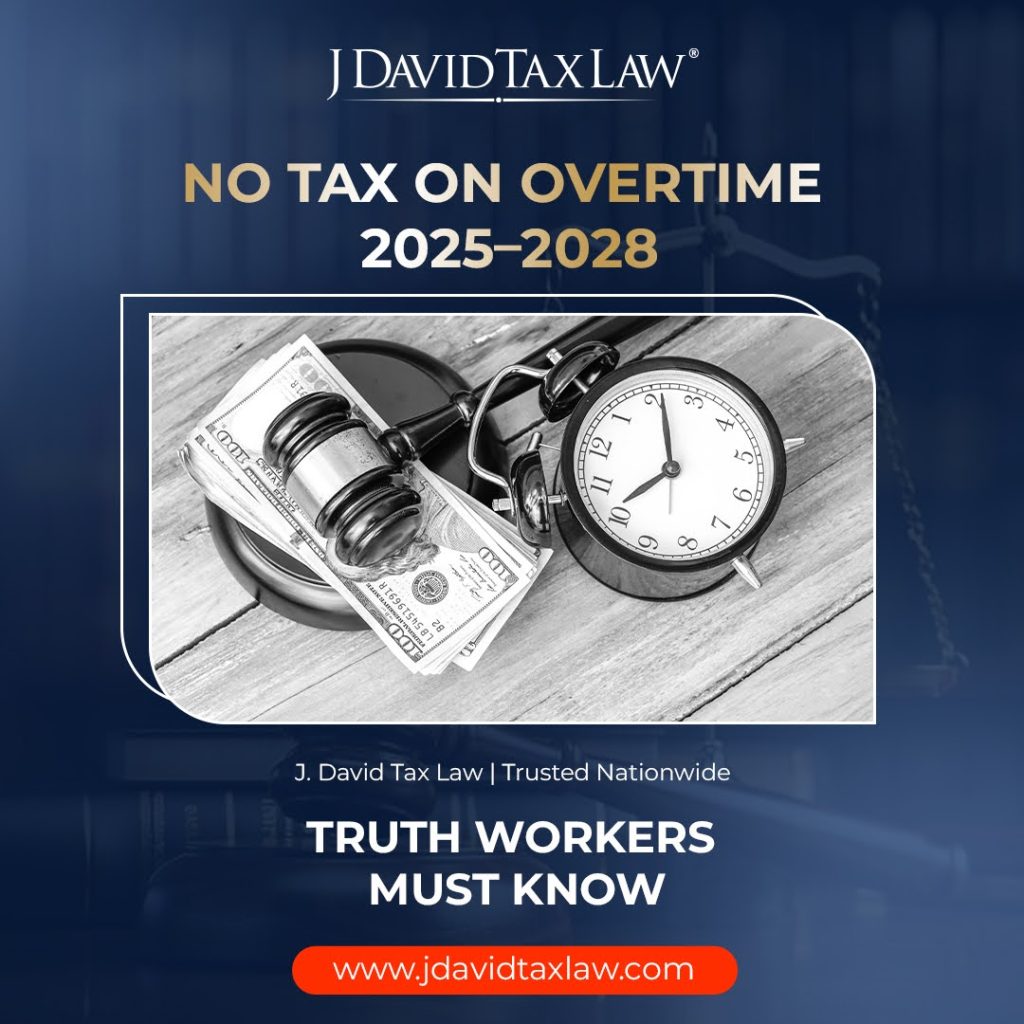Avoid the IRS Failure to Pay Penalty – 5 Ways to Fix Your Unpaid Taxes Fast!
If you owe taxes but haven’t paid them yet, you may be facing the IRS Failure to Pay Penalty. This penalty adds 0.5% of your unpaid taxes per month, up to 25% of the total balance. Worse, interest accrues daily on top of that, increasing your overall tax burden. Ignoring unpaid taxes can lead to severe IRS collection actions, including tax liens, levies, and even wage garnishments. It’s important to remember that April 15 is the deadline for filing and paying taxes each year. Missing this deadline without filing an extension can trigger penalties and interest charges that quickly add up.
Many taxpayers, both individuals and business owners, find themselves overwhelmed by tax debt and unsure of how to resolve it. The good news? The IRS provides multiple solutions to help you fix unpaid taxes fast and avoid additional penalties. This guide outlines five effective ways to resolve tax debt quickly and get back into compliance with the IRS.
1. File Your Taxes On Time
One of the biggest mistakes taxpayers make is not filing their tax return when they cannot afford to pay. However, not filing is actually worse than not paying. The IRS imposes a Failure to File Penalty of 5% per month (capped at 25% of the unpaid tax amount), which is ten times higher than the Failure to Pay Penalty. According to the IRS Data Book, in fiscal year 2023, over $40 billion in failure-to-file penalties were assessed, impacting millions of taxpayers. This underscores the importance of filing on time, even if full payment isn’t possible.
For businesses, timely filing is critical. Companies that fail to file payroll tax returns (Form 941) face Trust Fund Recovery Penalties, which can hold business owners and officers personally liable for unpaid payroll taxes.
Steps to Take Right Now
- File your return immediately, even if you can’t pay the balance. This prevents the Failure to File Penalty, which accumulates much faster than the Failure to Pay Penalty.
- If you missed the deadline, file as soon as possible to stop additional penalty accrual.
- If you need more time, apply for an IRS tax extension (Form 4868 for individuals, Form 7004 for businesses). However, be aware that an extension only grants additional time to file, NOT to pay.
- For businesses, ensure all required payroll tax forms and corporate tax returns are submitted on time to avoid unnecessary penalties.
By filing promptly, you eliminate one of the largest IRS penalties and reduce overall IRS debt while focusing on addressing tax payment solutions.
2. Pay What You Can Immediately
Even if you can’t pay the full tax balance, making a partial payment immediately can reduce penalties and interest significantly. The IRS Failure to Pay Penalty is calculated based on the unpaid balance, meaning any reduction in that balance will lower ongoing penalties and interest accrual.
Additionally, interest on unpaid taxes is charged daily at the federal short-term rate plus 3% (IRS Interest Rates). Over time, this can add thousands of dollars to an already overwhelming debt. Delaying payment only increases the overall amount owed, making it harder to settle with the IRS.
Immediate Actions to Reduce Your Tax Burden
- Make a payment today, even if it’s small. The IRS applies payments to the oldest tax year first, reducing penalties on that balance.
- Use available cash flow or savings to reduce the unpaid amount. Prioritizing tax payments over non-essential expenses prevents further financial strain.
- For businesses, ensure that payroll tax deposits are made, as missing these can lead to immediate IRS enforcement actions.
- Consider financing options, such as:
- Personal loans or business lines of credit
- 0% APR credit cards (if financially viable)
- Home Equity Line of Credit (HELOC) (for large tax debts)
- IRS Short-Term Payment Extension (120 days) (IRS Payment Options)
- Be cautious: compare interest rates, as IRS penalties often exceed standard loan interest costs (CNBC Report).
- Use the IRS Online Payment System to make same-day payments and avoid processing delays.
Struggling with unpaid taxes? Our expert tax attorneys help reduce penalties, negotiate IRS payment plans, and stop liens & levies. Call at (888) 342-9436 for a free consultation!
3. Set Up an IRS Payment Plan
If you can’t pay your full tax balance, the IRS offers Installment Agreements, allowing you to pay off your debt over time while reducing the Failure to Pay Penalty from 0.5% per month to 0.25%. Setting up a payment plan also prevents aggressive IRS collection actions, such as Tax liens, Bank levies, and wage garnishments. Once an agreement is in place, the IRS generally will not take enforcement action as long as you make timely payments.
How to Apply for an IRS Payment Plan
- For debts under $50,000, apply for an Online Payment Agreement via the IRS website.
- For debts over $50,000, you may need to submit Form 9465 and provide financial disclosure forms.
- For businesses, payment plans are available for debts under $25,000 if paid within 24 months.
- Ensure you set up automatic payments to stay compliant and avoid default.
By establishing an Installment Agreement, you gain control over your tax debt and prevent escalating penalties. If you need assistance setting up a payment plan, consulting J David Tax Law can help ensure you get the best possible terms.
Your Tax Relief Questions, Answered
If you fail to file your tax return, the IRS will assess a Failure to File Penalty, which is 5% of the unpaid taxes per month, up to a maximum of 25%. If you owe taxes, interest will also accrue daily. In extreme cases, failure to file can lead to tax liens, levies, or even criminal charges. Filing on time, even without full payment, helps reduce penalties.
While the IRS does not jail people for simply owing taxes, willful tax evasion or fraud, such as intentionally hiding income or filing false returns, can result in criminal charges. Tax evasion convictions can lead to fines and prison sentences. If you owe taxes but cannot pay, setting up a payment plan or seeking IRS relief can prevent severe consequences. Read our blog for more details
The IRS may waive the Failure to Pay Penalty through First-Time Penalty Abatement or Reasonable Cause Relief if you have a history of compliance or experienced unforeseen circumstances like illness or natural disasters. Contact our tax attorneys to explore more options.
Income tax is based on an individual’s earnings and paid directly by the employee. Payroll tax, on the other hand, is collected from employees’ wages by employers, who then remit the amount to the IRS. Payroll taxes are specifically used to fund Social Security, Medicare, and other government programs.




















